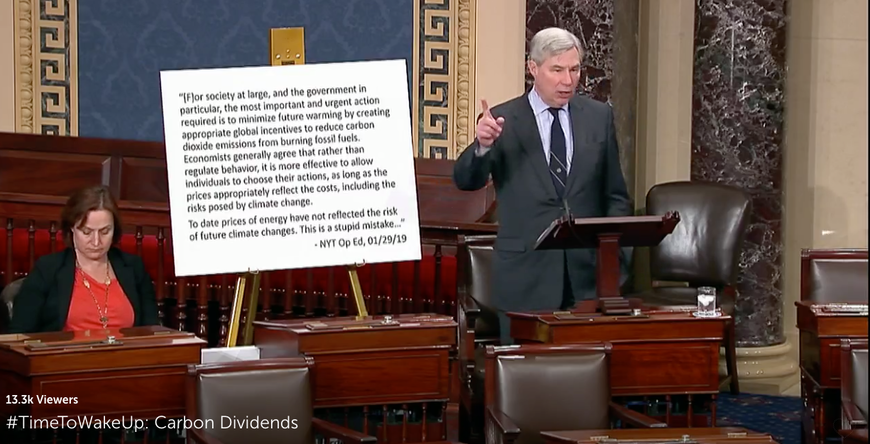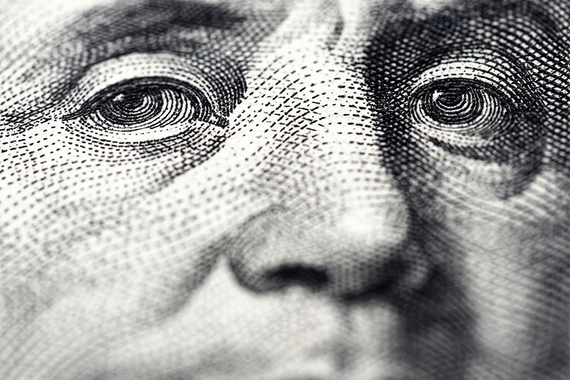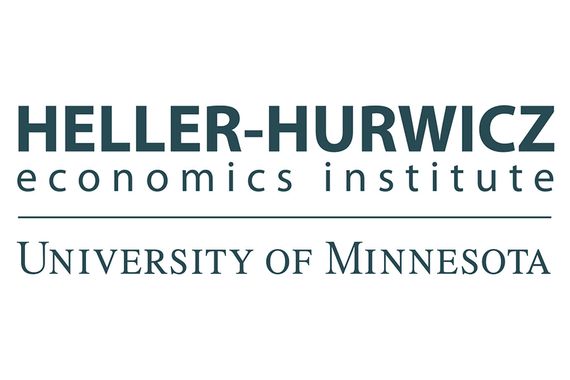Senate Testimony Quotes Bob Litterman on Carbon Dividends
To date prices of energy have not reflected the risk of future climate damages. This is a stupid mistake..."
-NYT Op-ed 01/29/2019
On February 6, Senator Sheldon Whitehouse quoted alumnus Bob Litterman's ('80) recent op-ed published by the New York Times.
Senator Whitehouse's testimony also cites the January Wall Street Journal op-ed signed by 27 Nobel Laureates and dozens of other economists that have held prominent policy positions. Signers with Minnesota connections include Nobel Laureate alumni Daniel McFadden ('62) and Lars Peter Hansen ('78) as well as Nobel Laureate former faculty members Thomas Sargent and Christopher Sims.
"To maximize the fairness and political viability of a rising carbon tax, all the revenue should be returned directly to U.S. citizens through equal lump-sum rebates. The majority of American families, including the most vulnerable, will benefit financially by receiving more in “carbon dividends” than they pay in increased energy prices."
-WSJ Op-ed 01/16/2019



